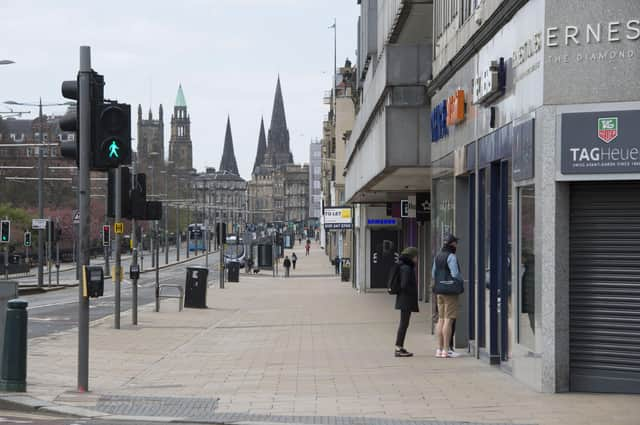Economic recovery will prove a Herculean task - comment


See the apparent trade-off between public health and economic growth. Essential restrictions to prevent the spread of the virus stop us shopping or socialising, hurting both the economy and our mental health.
Lifting those restrictions risks a second wave that could cause incalculable economic harm – for example closing shops over the crucial Christmas trading period. The classical simile may provide the solution.
Advertisement
Hide AdAdvertisement
Hide AdHeracles succeeded in defeating the Hydra by including his nephew Iolaus – who could cauterise the stumps, preventing further growth. The same is true here. Preventing the virus spreading whilst restarting the economy is the key to rebuilding our economy.


Retailers are ready to lead this work. Grocers and pharmacies show safe trading is challenging but achievable. Retail sales fell 40 per cent in April compared to the same month in 2019. Stores must manage physical distancing, upgrading online deliveries, extra colleague hours, and infrastructure to keep colleagues and customers safe.
The operational costs may well exceed the value of the 100 per cent rates relief generously provided by the Scottish Government. Running a shop has become more expensive, and takings are down. Every retailer has stores that are more profitable than others, and some may never reopen.
Therefore, changing current incentives should be at the heart of any economic recovery plan, with the focus on protecting people’s jobs. The Coronavirus Job Retention Scheme has been a great success in keeping people in work – but it can only be a holding action. It’s not a trade-off between safety and the economy, it’s about doing both.
Boosting confidence
Rebuilding business and consumer confidence is a pre-requisite. On one side, that requires a successful test, trace, isolate system. We need clear plans to make visiting high streets safe. But we also need to deal with consumer under-confidence.
Shoppers will need encouragement to resume normal spending patterns through short-term economic stimulus. That could involve a mixture of targeted income tax cuts for lower earners, for example. At a UK level, a short-life VAT cut could have the same effect.
Getting people shopping again is one of the quickest ways to restart economic activity. Retailers will need to replenish stock, and restart supply chains. Government can also help with managing the cost of business in the coming key months. Non-Domestic Rates are the single greatest public policy cost for retailers and the current relief has been a lifeline.
Getting shops reopened and trading will allow retailers to start paying again next spring. However, Scottish ministers should consider tapering those bills at the start of the next financial year to avoid an inadvertent cost cliff edge.
Advertisement
Hide AdAdvertisement
Hide AdIt’s not just about taxes, but the opportunity cost of responding to new public policy measures. That’s why it was right for Scottish Ministers to pause work on the Good Food Nation and Circular Economy Bills. The principle needs to be adopted across government – a one-year moratorium on new public policy measures. Right now, firms need to focus on core trading, keeping customers and staff safe, and survival; everything else is a luxury.
Scotland’s economy will be completely changed by coronavirus. The time to shape that change has arrived. Urgent intervention to drive economic activity over the next 12 to 18 months will keep people in work, which will help maintain our productive capacity, making it more likely the recession will be shallower and the recovery swifter.
This is not the moment for austerity, or distraction. The task is perhaps more daunting than the Hydra, or any of Heracles’ other labours. There is no doubt it matters an awful lot more.
Ewan MacDonald-Russell, head of policy and external affairs, Scottish Retail Consortium
A message from the Editor:
Thank you for reading this story on our website. While I have your attention, I also have an important request to make of you.With the coronavirus lockdown having a major impact on many of our advertisers - and consequently the revenue we receive - we are more reliant than ever on you taking out a digital subscription.Subscribe to scotsman.com and enjoy unlimited access to Scottish news and information online and on our app. With a digital subscription, you can read more than 5 articles, see fewer ads, enjoy faster load times, and get access to exclusive newsletters and content. Visit https://www.scotsman.com/subscriptions now to sign up.
Our journalism costs money and we rely on advertising, print and digital revenues to help to support them. By supporting us, we are able to support you in providing trusted, fact-checked content for this website.
Joy Yates
Editorial Director
Comments
Want to join the conversation? Please or to comment on this article.